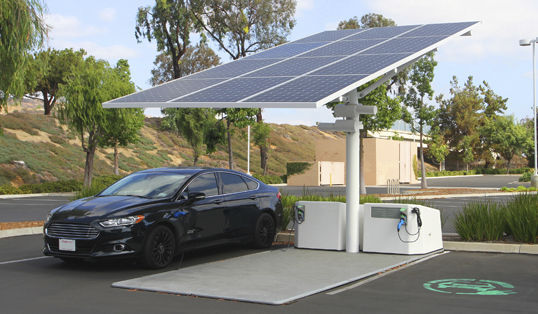While it is technically possible to use solar panels to directly charge pure electric vehicle (EV) batteries, it’s not a common or practical method for several reasons:
- Solar Panel Output: The power output of solar panels is relatively low compared to the energy capacity of electric vehicle batteries. Solar panels generate electricity at a much slower rate, which means it would take a long time to fully charge an electric vehicle using solar panels alone.
- Inefficiency: Solar panels are not 100% efficient, so some energy is lost during the conversion from sunlight to electricity. Additionally, the angle and orientation of the panels need to be optimized to capture the most sunlight, and factors like shading can further reduce efficiency.
- Intermittent Charging: Solar panels only produce electricity when exposed to sunlight. This makes them suitable for topping off an EV’s battery during the day but insufficient for providing a complete charge, especially if the vehicle is used daily and has a significant energy demand.
- Battery Compatibility: Connecting solar panels directly to an electric vehicle’s battery requires the right voltage, current, and charging protocol. EVs typically have complex battery management systems and charging electronics that need to be matched for safe and effective charging.
- Energy Storage: For a practical solar EV charging setup, you would typically need energy storage (e.g., a battery bank) to store excess solar energy during the day for use in charging the EV at night or when sunlight is not available.
- Grid Charging: Most electric vehicle owners prefer to charge their cars from the electrical grid because it provides a more reliable and faster charging option. Grid electricity can be generated from various sources, including renewables, so it’s still an environmentally friendly choice.
That said, some experimental and niche projects have explored the idea of using solar panels to directly charge EVs, and it may be feasible for certain situations. For instance, a solar canopy or carport with integrated solar panels could provide a slow but continuous trickle charge to an electric vehicle parked underneath, adding a few miles of range each day.
In practice, however, most EV owners rely on grid charging and use solar panels to offset their overall energy consumption or to feed excess energy back into the grid through net metering, rather than for direct vehicle charging. This is a more reliable and efficient approach to utilizing solar energy for both residential power and electric vehicle charging needs.


